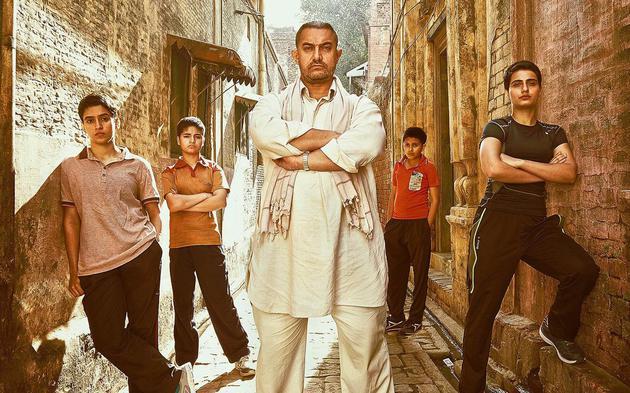China Fears India May Be Edging It Out in Culture Battle
《摔跤吧!爸爸》折射中印軟實力較量
By AMY QIN October 9, 2017
BEIJING—One of the most popular movies in China over the summer ran 161 minutes, so long that it was sometimes shown with an intermission. Unlike Hollywood blockbusters, there were no special effects, speeding cars or epic battle scenes. Nor was the film a Chinese production with a Chinese cast.
北京—今年夏天在中國最火的一部電影時長161分鐘,長到放映過程中有時會有中場休息的程度。不同于好萊塢大片,這部電影里沒有特效,亦沒有飛馳的汽車或史詩般的戰爭場面。它也不是由中國出品的,演員表上根本沒有中國人。
Instead, it won over audiences with a simple but powerful tale: the true story of a man's quest to train two daughters to become world-class wrestlers—in India. Featuring the Bollywood star Aamir Khan, "Dangal" was India's first big hit at the Chinese box office.
幫它贏得觀眾的是簡單但卻動人的故事:一個男人希望把兩個女兒培養成世界級摔跤手,一個發生在印度的真實的故事。由寶萊塢明星阿米爾·汗(Aamir Khan)領銜主演的《摔跤吧!爸爸》(Dangal),是第一部在中國取得巨大票房成功的印度影片。
While China's film industry has long sought both to emulate and compete with Hollywood, the runaway success of "Dangal" has prompted Chinese production companies to turn their gaze from West to East.
中國電影業一直以效仿和趕超好萊塢為目標,但《摔跤吧!爸爸》的巨大成功,已經引得中國制作公司把目光從西方轉向東方。

Under Prime Minister Narendra Modi, India has made it a priority to increase its cultural influence around the world. The country has sought to burnish its spiritual image by promoting itself as the birthplace of Buddhism and yoga. Indian novelists and poets have gained global name recognition around the world, even in China. There is also Bollywood, which has put Indian filmmaking on the map.
納倫德拉·莫迪(Narendra Modi)總理治下的印度,把提升本國在世界上的文化影響力作為頭等大事。印度一直試圖通過以佛教和瑜伽誕生地的名頭來突顯自己的精神特質。印度的小說家和詩人在世界范圍內極具知名度,其中也包括中國。印度還有個寶萊塢。寶萊塢為印度的電影制作業博得了盛名。
Similarly, China has made no secret of its soft power ambitions. The outcome of its most ambitious soft power project to date—President Xi Jinping's $1 trillion One Belt, One Road initiative—remains to be seen.
中國同樣毫不掩飾其提升軟實力的雄心。中國迄今為止最雄心勃勃的軟實力項目,是習近平主席的總投資將達1萬億美元的“一帶一路”計劃讓人拭目以待。











